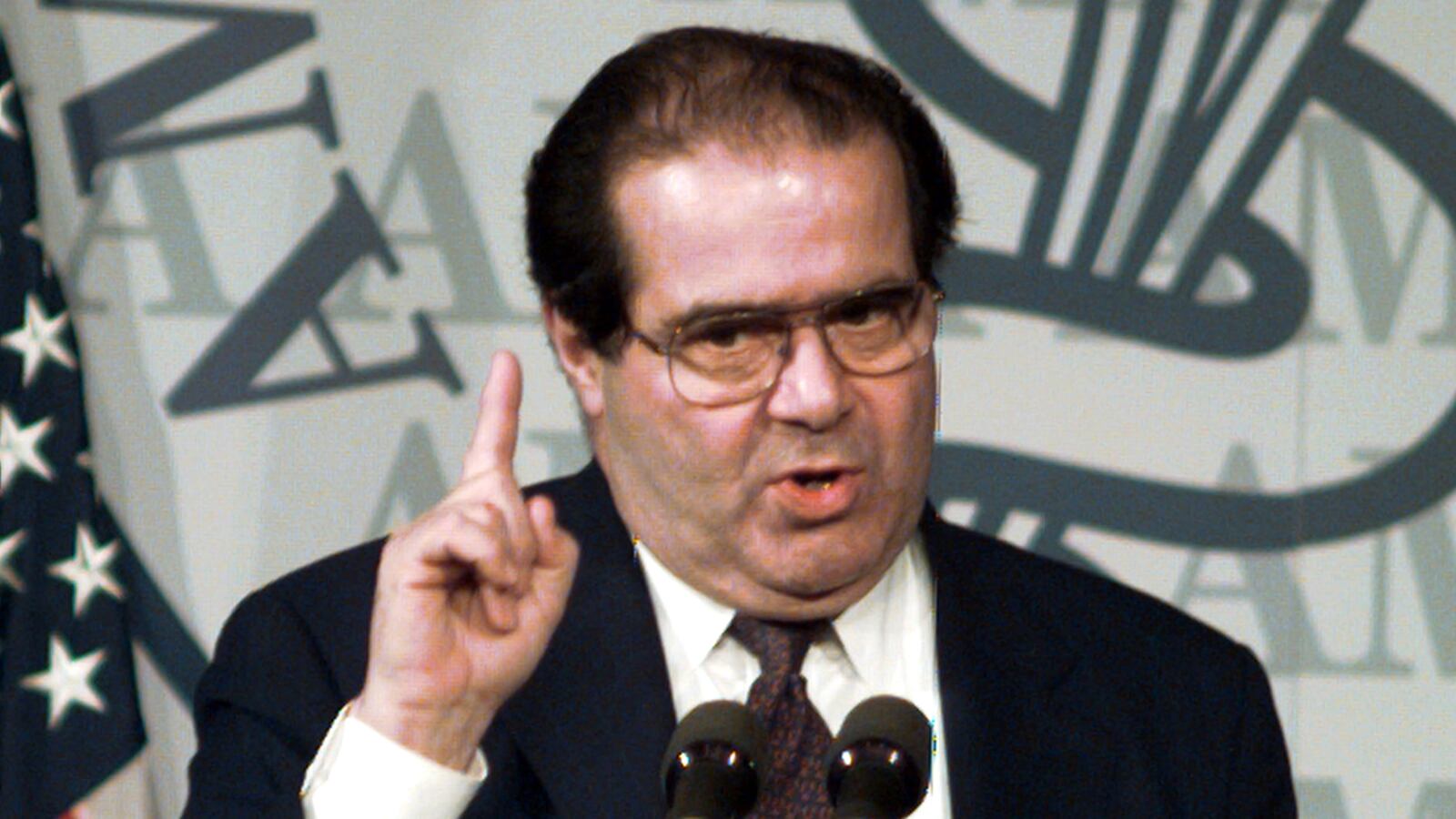
Justice Antonin Scalia now seems comfortable with the courts intervening to overturn half a century of precedent in the name of protecting economic liberties. His newest book declares his belief that Wickard v. Filburn was wrongly decided, and he co-authored the recent Supreme Court dissent calling for the overturn of all of Obamacare.
Who would disagree with this approach? The younger Judge Scalia.
When Justice Scalia was just Judge Scalia on the DC Circuit court, he did not see it as the court's role to intervene and protect perceived violations of economic liberty. In 1985 wrote an essay arguing this view as part of a debate with Professor Richard Epstein, hosted by the Cato Institute.The essay reveals a Scalia who was very conservative but also less eager to see the courts overturn legislation. Scalia was clear that he did not want either side, left or right, use courts this way:
Though it is something of an oversimplification, I do not think it unfair to say that this issue presents the moment of truth for many conservatives who have been criticizing the courts in recent years. They must decide whether they really believe, as they have been saying, that the courts are doing too much, or whether they are actually nursing only the less principled grievance that the courts have not been doing what they want.
In his essay, Scalia considered whether the courts should reverse a half-century of precedent established under the New Deal. He did not agree this was an appropriate role for them:
But I do believe that every era raises its own peculiar threat to constitutional democracy, and that the attitude of mind thus caricatured represents the distinctive threat of our times. And I therefore believe that whatever reinforces rather than challenges that attitude is to that extent undesirable. It seems to me that the reversal of a half-century of judicial restraint in the economic realm comes within that category. In the long run, and perhaps even in the short run, the reinforcement of mistaken and unconstitutional perceptions of the role of the courts in our system far outweighs whatever evils may have accrued from undue judicial abstention in the economic field.
The essay reveals Scalia arguing from a different time. One of the points he makes is that conservatives should not write economic rights in the constitution via the courts because the left might end up doing the same in response. He warns of the United Nations' Universal Declaration of Human Rights being the template for that sort of left-wing jurisprudence:
What would you think, for example, of a substantive due-process, constitutionally guaranteed, economic right of every worker to "just and favourable remuneration ensuring for himself and his family an existence worthy of human dignity?" Many think this a precept of natural law; why not of the Constitution? A sort of constitutionally prescribed (and thus judicially determined) minimum wage. Lest it be thought fanciful, I have taken the formulation of this right verbatim from Article 23 of the United Nations' Universal Declaration of Human Rights.
Not an impossible threat, but it's one sign of how the threat of left-wing judicial activism looked very different when Scalia wrote this in 1985.
What has changed since then? I can't give an overview of Scalia's nearly 30-year history on the bench but it would be fair to say that the style of originalism that Scalia espoused proved to be insufficient for the goals of some.
Jeffrey Rosen reports how some conservative legal theorists now describe this old way of adjudicating as "naïve originalism" since it didn't actually lead to the results some conservatives really wanted:
At a recent conference at Yale Law School, Michael Greve of the American Enterprise Institute, another leader of the Exile movement, took aim at what he called the philosophy of “naïve originalism,” championed during the 1980s by conservatives like Edwin Meese. Naïve originalism, Greve stated bluntly, was framed as a methodology of restraint—a way of preventing judges from second-guessing democratic decisions. But more recently, Greve went on, certain legal conservatives—especially in the business community—had lost faith in judicial restraint and become more interested in protecting their economic interests through judicial activism. “Naïve originalism has nothing to offer people worried about government overreach and that includes the business community,” Greve said. Pro-business conservatives, he argued, were now more interested in embracing constitutional doctrines that could “discipline a wayward politics”—even if that means rule by judges. It was a stunning admission.
The merits of such an approach aside, this has be acknowledged as a genuinely new approach. Scalia's own transformation shows how the conservative legal movement has changed since becoming largely ascendent.






